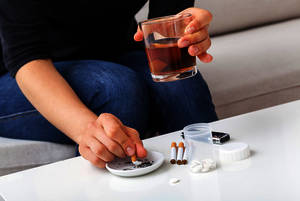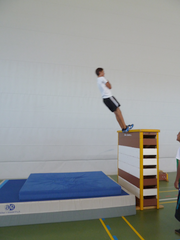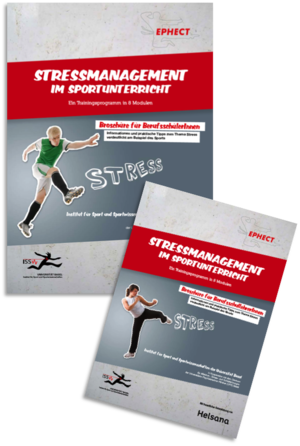
Background
Negative coping behaviors acquired during adolescence such as smoking, drinking, and substance use may be retained for a lifetime and cause serious health problems. A national study with Swiss adolescents showed that improved skills in dealing with negative emotions, stressful situations and sleeping problems are the most requested health needs of young people. These findings highlight that a considerable portion of adolescents appears to have problems coping with their developmental tasks, and corroborate that adolescents’ confidence in their coping skills decreases during adolescence.

Vocational students - a risk population?
Studies have shown that vocational students are at increased risk for stress-related illness (e.g. depression, insomnia, substance abuse). Despite these insights, research on the relationship between stress, coping and sleep among vocational students is scarce. This is surprising, given that in some countries such as Switzerland, vocational education and training (VET) serves as the primary gateway to numerous occupations, and the majority of all secondary school diplomas (74% in Switzerland) are granted to students with VET (OECD, 2012). Swiss VET combines apprenticeships in a company and vocational training in a school; while apprentices receive a limited salary for their work in the company, they often have equal workloads in terms of working hours as well as responsibilities similar to adult employees (www.vetplus.ch).

Promoting life skills in physical education class
Several school-based intervention programs have been developed to promote stress management skills among adolescents. The majority of these programs are based on theoretical education about stress and coping in a classroom setting. This bears the risk that students see the program as yet another part of compulsory education. In contrast, P.E. class appears to be more attractive, because it takes place in a more casual environment. Moreover, P.E. has the potential to integrate both theoretical and practical experiences of stress. This practical approach incorporates the idea of experiential learning, in which the learning process occurs through action and reflection on “doing”. Transferred to coping training: If students get confronted with stressful or apparently unsolvable tasks in P.E., they need to apply appropriate coping skills. During a short reflection period following the tasks, the experiences of adaptive and maladaptive coping strategies can be discussed. Furthermore, in order to apply the learned coping strategies to real life situations, students need to become aware of warning signs of the body (e.g. high pulse rate, problems concentrating, moodiness, sleep problems, headaches). A short reflection on students’ individual stress responses could be a useful way to increase student sensitivity for mental hygiene.

Aim & Evaluation
Therefore, our aim was to implement a physical education based coping training and to evaluate effects on perceived stress, coping and sleep. Eight classes from a Swiss vocational school (N=131; aged 16.22 years) were randomly selected to participate in this cluster randomized controlled trial. Two trained physical education teachers implemented the program among students of the intervention group, while students of the other four classes maintained regular physical education (PE).
To evaluate effects of the coping training, all students completed three series of questionnaires (assessing stress, coping, sleep). Baseline data were collected in August 2012, post data were collected in November 2012, and follow-up data in June 2013. Non-participating classroom observers affirmed a high implementation rate throughout the intervention.

Intervention materials - Booklets for teachers and students
The contents of the intervention program are derived from a series of field-tested stress management programs. Components of these programs were adapted and tailored towards the specific professional situation of VET students consisting of the dual burden of academic and work-related requirements. Each module is linked with one or several motor learning tasks. The weekly implementation of each module requires about 20 minutes. To limit the time necessary for theoretical inputs, each student receives a booklet to work with. Reflection tasks encourage the students to transfer the experiences obtained in P.E. to other domains of life. Moreover, to keep the workloads for the teachers low each teacher receives a manual in which every module is described in detail.
The EPHECT coping training consists of six modules:
(new and revised edition 2014)
Module 1
Addresses basic knowledge about the development of stress. The following five modules focus on various aspects related to emotion- and problem-focused coping.
Module 2
Promotes planning skills, time management and the capacity of dealing with behavioral barriers.
Module 3
Raises the awareness for dysfunctional and potentially stress-accelerating cognitions and addresses positive thinking styles (e.g., reframing, positive self-talk).
Module 4
Students practice specific relaxation techniques including progressive muscle relaxation and breathing exercises. This module also aims at improving students’ sleep hygiene.
Module 5
Aims at improving problem solving skills.
Module 6
Addresses aspects of successful help seeking.
A detailed description of each module and the implementation is provided within the teacher zone. Please register and get your personal login (this area is protected, so students don`t get access to teaching materials).